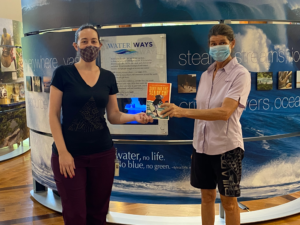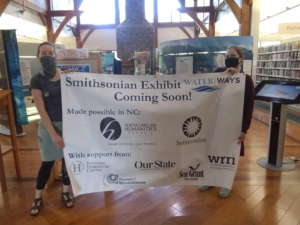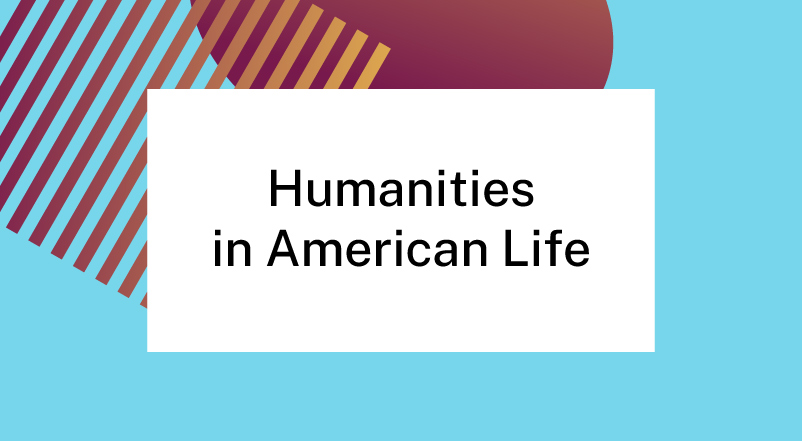One Librarian’s “Watershed Moments” During The Pandemic
by Sydney Boyd, editor & content producer
In the summer of 2020, Kristina Moe was preparing to open Water/Ways, a Smithsonian travelling exhibit and one of the first North Carolina Humanities “Watershed Moments” events of the year, at the Macon County Public Library where she works as a reference assistant.
“To be honest, I was very nervous,” Moe recalled.
 “Watershed Moments,” a North Carolina Humanities initiative focused on exploring our relationship with the environment and examining environmental issues impacting North Carolina, is part of the national initiative on “Democracy and the Informed Citizen” administered through the Federation of State Humanities Councils and funded by The Andrew W. Mellon Foundation. The initiative included programs like a Statewide Read of The Water Knife by Paolo Bacigalupi and Dry by Neal and Jarrod Schusterman as well as a statewide tour of Water/Ways.
“Watershed Moments,” a North Carolina Humanities initiative focused on exploring our relationship with the environment and examining environmental issues impacting North Carolina, is part of the national initiative on “Democracy and the Informed Citizen” administered through the Federation of State Humanities Councils and funded by The Andrew W. Mellon Foundation. The initiative included programs like a Statewide Read of The Water Knife by Paolo Bacigalupi and Dry by Neal and Jarrod Schusterman as well as a statewide tour of Water/Ways.
“We’d closed the library for a couple of months, and we had been so excited to be hosting something from the Smithsonian Institute knowing that this might be the only opportunity people might be able to connect to the actual Smithsonian museum,” Moe said. “But when restrictions were getting tighter and the virus numbers were getting higher, it just felt like we were saying, ‘The Smithsonian is coming, but we don’t know if anyone can come see it!’ so that was really hard. Part of the library’s mission is to be a community gathering place, to be the heart of the community, and it was really hard when we realized we were going to have a lot of restrictions around that.”
Moe has worked at the Macon County Public Library for 14 years. From this exhibit to film screenings, the Statewide Read, and other discussion groups, Moe was involved in pretty much every aspect of “Watershed Moments,” but each step took some creativity and perseverance to overcome the many unexpected obstacles COVID-19 brought.
“This was new. This was new for all of us,” Moe said. “I think that if we hadn’t had the humanities council behind us encouraging us, if we  hadn’t had the Smithsonian helping us prepare for this, I don’t think we would have had the programming that we did…So really, the humanities and ‘Watershed Moments’ helped us learn how to be a library again.”
hadn’t had the Smithsonian helping us prepare for this, I don’t think we would have had the programming that we did…So really, the humanities and ‘Watershed Moments’ helped us learn how to be a library again.”
When I talked to Moe, a year had gone by since that first quick pivot to host Water/Ways, and her library was about to launch one of its last events in the “Watershed Moments” initiative, a screening of Revisioning Recovery: Films Uncovering the Roots of Disaster. It was a film event that included stories about a proposed pipeline in North Carolina, but also the aftermath of Hurricane Maria in Puerto Rico, the fight to break the cycle of communities of color serving as dumping grounds in New Jersey, Hurricane Katrina’s impact on people with disabilities, and racial injustice and climate gentrification in Miami.
I asked her why these wide-ranging discussions about the environment were happening in a library.
“Libraries have everything to do with these conversations about getting out and sharing what we have,” Moe told me. “The library is not just about books.”


